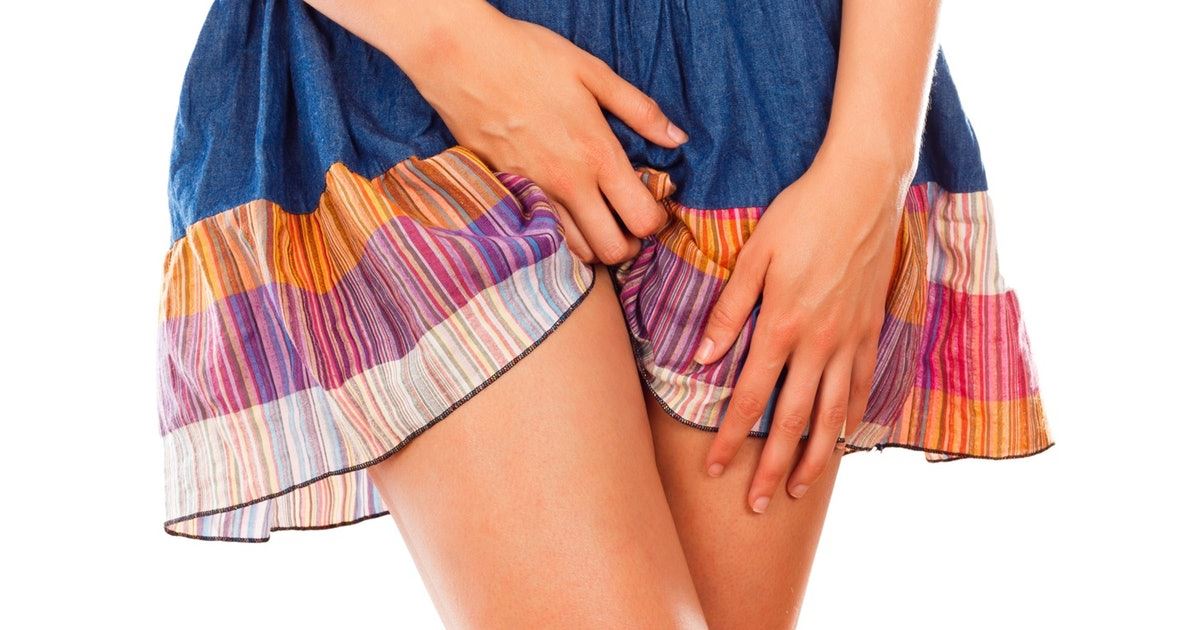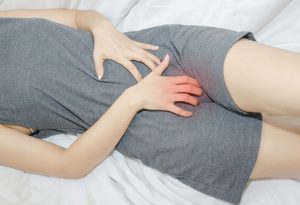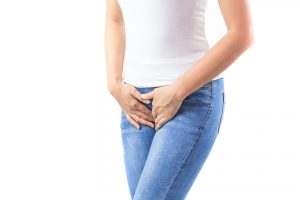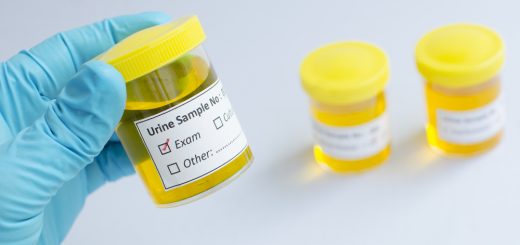Itching in women in the intimate area without discharge

Itching in intimate places in women is quite common. It can be caused by a variety of reasons – from allergies to cancer. You should not panic when this unpleasant symptom occurs, however, you should not leave it unattended either. Let’s take a look at the possible causes and solutions to this problem.
Internal causes of itching
The causes of itching in the intimate area in women can be roughly divided into internal and external. The former are due to the general state of the body, and the latter are due to the influence of external factors.
Hormonal imbalance
Changes in hormonal levels can occur during the menstrual cycle, during pregnancy, and also on the eve of menopause. Such changes can cause dryness of the mucous membranes of the vagina and the phenomenon of vaginitis. As a result, itching occurs, which is not always accompanied by discharge.
Malignant neoplasms in the reproductive system
In some cases, itching can occur as a result of vulvar cancer or a precancerous condition (kraurosis). These conditions are accompanied by atrophy of the external genital organs, resulting in dryness and constant itching. This is not the most common reason, so you should not panic ahead of time. However, you need to see a doctor – just to be on the safe side.
General pathologies of the body
The presence of foci of inflammation predisposes to its spread to other organs, including the genitals. In addition, any pathology weakens natural immunity. Therefore, the gynecologist can prescribe examinations that, at first glance, have nothing to do with the reproductive system. If the doctor’s fears are confirmed, then before taking on the elimination of itching in the intimate area, you will have to deal with the treatment of the primary disease.
Allergy
Often, itching in the vagina occurs as a result of an allergic reaction to a certain irritant. This can be new detergent, bath additives, laundry residues on your underwear, and even toilet paper.
Some women also complain of an itching sensation in the intimate area after sex. In this case, both latex, from which condoms are made, and semen can become an allergen – although the latter is quite rare. If laboratory tests confirm changes in the activity of the immune system associated with allergies, then it will be necessary to trace the pattern of occurrence of such reactions in order to identify the allergen.
External causes
Itching in the vagina can occur not only as a result of concomitant diseases, but also as a result of exposure to a number of external factors.
Failure to comply with the rules of intimate hygiene
It is important to observe the rules of intimate hygiene for everyone – both men and women. However, for whatever reason, not all and always follow these rules. Some women may need to pay more attention to hygiene than others, and this also applies to wearing underwear.
Sometimes, due to these reasons, the balance of the vaginal microflora is disturbed – there is a shift towards pathogenic and opportunistic bacteria, which is fraught with the development of inflammatory processes and discomfort in the vagina.
Some women sometimes need to wash more often, such as before and after intercourse. Although this is not at all necessary if both partners are satisfied with everything.
Also, douching should not be carried out often – this helps to wash out the beneficial microflora. Dry with a soft towel only – the hard surface of the fabric can provoke irritation (especially if you use more force than necessary).
Epilation and depilation
Sometimes itching in the perineum can occur after depilation – this is especially common in women with sensitive skin. In addition, if the depilatory cream is applied too close to the external genitals, irritation of the vulva can occur, which causes discomfort.
Sanitary napkin
Scented pads can cause itching. The substances used for flavoring can irritate the mucous membranes. The use of panty liners is another risk factor for some women. The materials used for production can cause discomfort and discomfort. As a result, even vaginitis can develop – an inflammation of the vagina, which is accompanied by characteristic itching sensations.
Wrong choice of intimate hygiene products
The reason may also lie in the use of unsuitable intimate hygiene products, which either dry out the mucous membranes, or cause irritation and allergic reactions due to chemicals that give the gel or soap a persistent pleasant smell. That is why it is better not to purchase strong-smelling intimate hygiene products.
By the way, ordinary soap is also poorly suited for daily hygiene procedures, since it gives an alkaline reaction – this is another possible reason for the appearance of an unpleasant symptom.
Hypothermia
Itching can also occur as a result of hypothermia. To avoid this, avoid sitting on cold surfaces and wearing too light clothing in cold weather. By the way, overheating should also be avoided – any effects of stressful temperatures are undesirable, since they weaken the barrier function of epithelial tissue.
Taking medications
Against the background of treatment with antibacterial drugs, an imbalance in the microflora may occur, and not only in the intestines, but also in the vagina. As a result, candidiasis and bacterial vaginosis develop. If at the same time the woman’s immunity is weakened, the disease can spread to other organs of the reproductive system.
Nutrition
Violation of the diet can also cause discomfort in the intimate area. Sometimes, frequent consumption of spicy, pickled, salty and canned foods can cause itching. Allergic reactions to sweets, milk, citrus fruits, legumes and other foods are also possible.
Pubic lice
Pubic lice are parasites and feed on the blood of their host, and their bites itch a lot. You can make these little friends during sex, as well as when using someone else’s clothing or hygiene items. In addition to scratching, pustular rashes may remain on the skin.
Additional reasons
A few more possible causes of itching in an intimate place:
1. Trauma to the vaginal mucosa, which most often occurs as a result of rough sex or with insufficient lubrication.
2. Parasitic infections (opisthorchiasis and enterobiasis).
3. Sexually transmitted infections. Genital herpes and gonorrhea cause a burning sensation in the vulva. Discharge is characteristic of gonorrhea, however, with a latent course of the disease, they may be absent.
4. Diabetes mellitus. When the sugar content is high, the fungi of the genus Candida are activated. As a result of their vital activity, itching of the external genital organs occurs.
5. Stress. It would seem, how can it cause itching in an intimate place? It turns out that nervous shocks inhibit the growth of beneficial vaginal microflora.
It’s not just about spermicidal condoms. The use of hormonal birth control pills can cause mucus in the cervix and vagina to thicken and decrease mucus production. Dryness of the mucous membranes can lead to microtrauma during intercourse, and this entails the occurrence of unpleasant sensations.
Treatment
As you might guess, it will directly depend on the cause that caused the unpleasant symptom. There is no universal method in this case – first you need to identify the cause, and then take action.
Usually, all people are concerned not only with the therapeutic technique, but also with how painful the treatment procedures will be – women are no exception. But you don’t need to worry ahead of time – in most cases, a small lifestyle correction or a short course of medication will be enough.
You should not take medications on your own, because first you need to find out the exact reason, and this can only be done by a doctor. Does this mean that even with mild itching in the intimate area, you should go to the clinic? This measure will definitely not be superfluous, but first you can try to analyze the possible causes and take the following measures:
1. Spend time with intimate hygiene at least 2 times a day, without using detergents. Furacilin (1 tablet per 200 ml of warm water) or chlorhexidine (0.05%) can be added to the water.
2. Refuse from uncomfortable and synthetic underwear.
3. Abstain from sex and masturbation for 2-3 days.
4. Limit the diet of fried, spicy, sweet and pickled foods.
If the symptom does not go away within 3 days, you will have to visit a doctor and get tested. It is possible that the underlying disease will need to be treated. If the cause of the itching https://en.wikipedia.org/wiki/Itch is an allergic reaction, it will be necessary to identify the allergen and take a course of antihistamines on drink. If the cause is an infectious disease, you will have to undergo antibiotic treatment. In any case, the timely identification of the problem and the initiation of treatment make the prognosis for recovery favorable.


